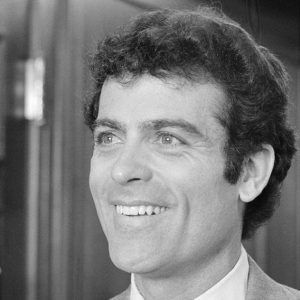calsfoundation@cals.org
Jack Hearn Watson Jr. (1938–)
Jack Hearn Watson Jr. is an attorney and former government official who served in a number of positions, including White House chief of staff, during the presidency of Jimmy Carter. Since leaving the White House, he has continued to be an active member of the legal and civic communities, both at home and abroad.
Jack H. Watson Jr. was born on October 24, 1938, in El Paso, Texas. The son of a navy enlisted man and his wife, Watson grew up in Pine Bluff (Jefferson County). He earned a BS from Vanderbilt University in 1960, and after a stint in the U.S. Marines, where he achieved the rank of captain, Watson attended Harvard Law School. After graduating in 1966, he accepted a position with the prominent Atlanta, Georgia, law firm King and Spalding, where he was made a partner in 1972. Watson met his first wife while at Vanderbilt, and they had two children; the marriage ended in divorce. He married again in 1977.
In 1970, Watson volunteered for Jimmy Carter’s successful gubernatorial campaign and was later appointed to the Board of Human Resources. Serving as chair of that board, he oversaw the largest agency in the reorganized Georgia government, the reorganization being one of Governor Carter’s signature initiatives.
During the early stages of the Carter presidential campaign, Watson served as national finance director. After Carter secured the nomination and selected Senator Walter Mondale as his running mate, Watson headed the Carter-Mondale Policy Planning Group. Following Carter’s victory over President Gerald Ford, Watson was named the director of the transition team and was charged with coordinating the transfer of power from Ford to Carter.
At the beginning of the Carter administration, Watson was secretary of the cabinet and assistant to the president for intergovernmental affairs. In those roles, he served as the primary liaison with cabinet secretaries and other presidential appointees as well as with the nation’s governors, mayors, and other state and local officials.
Watson was also asked to oversee the federal responses to national disasters, including the drought that gripped the West in 1977–78, the periodic gasoline shortages of the period, and the crisis at the Three Mile Island nuclear power plant. Watson recommended the creation of a federal agency to coordinate the federal response to such incidents formally. This proposal was enacted into law with the creation of the Federal Emergency Management Agency (FEMA).
In 1978, he was named chair of the President’s Interagency Coordinating Council, a cabinet-level group that was charged with coordinating the president’s major domestic policies, beginning with his urban policy. Watson served as White House chief of staff during the last year of the Carter presidency. Many observers say that the Carter White House was at its organizational best under his watch. Following Carter’s defeat in the 1980 election, and drawing upon his previous experience, Watson directed the transition from President Carter to President Ronald Reagan.
Watson returned to the practice of law, first at King and Spalding and then as a senior partner with the Atlanta-based firm of Long, Aldridge and Norman, serving as managing partner of their Washington DC office from 1993 to 1998. From 1998 to 2000, he was chief legal strategist of Monsanto.
Watson has represented both the country and private interests around the globe. In 1986, he consulted with Brazilian officials about revisions to Brazil’s constitution, and in 1992, he consulted with Zambian leaders about challenges facing their new democratically elected government. In 1993, he was part of a five-member delegation sponsored by the National Committee for United States–China Relations that engaged in discussions with leaders from business, government, and academia from China, Hong Kong, and Taiwan. In 1994, he served as President Bill Clinton’s official representative to Australian-American Friendship Week, meeting with the Australian prime minister, Paul Keating, and other governmental officials to talk about issues of concern to both nations. In 2001, he led a private group sponsored by the Franklin and Eleanor Roosevelt Institute that met with a group of Russian leaders to discuss United States–Russian issues.
In 1990, the Georgia Supreme Court appointed Watson chair of the Georgia Commission on Dispute Resolution. He held the post for a decade, and under his leadership, Georgia developed a statewide system of alternative dispute resolution services. He has also served on the Board of the National Portrait Gallery in Washington DC, as well as the Carter Center in Atlanta, the city where he lives.
For additional information:
“Interview with Jack H. Watson, Jr.” Miller Center, University of Virginia. http://millercenter.org/president/carter/oralhistory/jack-h-watson-jr (accessed September 14, 2021).
William H. Pruden III
Ravenscroft School
 Divergent Prosperity and the Arc of Reform, 1968–2022
Divergent Prosperity and the Arc of Reform, 1968–2022 Jack H. Watson
Jack H. Watson 



Comments
No comments on this entry yet.